interviewed by Carl Slaughter
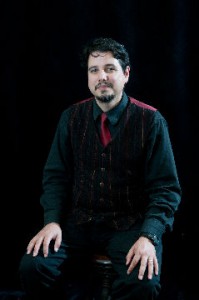 Strange Horizons editor Julia Rios, in an interview with SFWA, said of Tom Greene’s “Zero Bar,” published last year: “It knocked my socks off because it brought up so many things I’d experienced in my own life.” Greene recently sold “Another Man’s Treasure” to Analog. Greene has a Bachelor in English, a MFA in creative writing, and a Ph.D. in English literature. But he struggled for thirty years to discover why his stories were being rejected and how to write marketable fiction. In this interview with Diabolical Plots he explains what he learned in the process. “Zero Bar,” probably Greene’s best story, was significantly revised at the request of the above mentioned Rios. Greene explains why he didn’t have a knee-jerk reaction to these suggestions. He also shares some profound insights into why vampire stories are so popular and why the vampire myth has endured in fiction for so long.
Strange Horizons editor Julia Rios, in an interview with SFWA, said of Tom Greene’s “Zero Bar,” published last year: “It knocked my socks off because it brought up so many things I’d experienced in my own life.” Greene recently sold “Another Man’s Treasure” to Analog. Greene has a Bachelor in English, a MFA in creative writing, and a Ph.D. in English literature. But he struggled for thirty years to discover why his stories were being rejected and how to write marketable fiction. In this interview with Diabolical Plots he explains what he learned in the process. “Zero Bar,” probably Greene’s best story, was significantly revised at the request of the above mentioned Rios. Greene explains why he didn’t have a knee-jerk reaction to these suggestions. He also shares some profound insights into why vampire stories are so popular and why the vampire myth has endured in fiction for so long.
YOU TRIED FOR 30 YEARS TO WRITE MARKETABLE SCIENCE FICTION. YOU SAID YOU DISCOVERED ONLY A FEW YEARS AGO HOW TO WRITE WHAT SELLS. WHAT DID YOU LEARN AND HOW DID YOU ADAPT?
Well I started trying to write science fiction and fantasy back in about 1984, and I got my first actual sale in 2011 and my first SF sale in 2012. That’s all year after year, hundreds of rejections. And for all those years I was completely clueless about why no editor was interested in what I wrote. My teachers and family members seemed to like my stories, and I was good enough to get into and graduate an MFA program, but no publications. Not even one.
So I did what a lot of newbies do and blamed the industry, as if there’s some kind of conspiracy of publishing insiders striving to keep new writers out (actually the truth is that most editors are desperately looking for talented new writers).
Some people tried to help me, but I wasn’t ready to hear those lessons because I didn’t accept that the problem was with my stories. So I rejected any suggestion that it was my writing, and I became the stereotypical sulky, failed writer and wore a beret and smoked clove cigarettes and drank a lot of red wine at parties.
What was actually happening is that for the first 25 years or so, I was writing stories about characters who weren’t very interesting doing things that nobody cared about. I think a lot of newbies fall into the same trap: unlikable characters in linear plots. Sometimes I had good ideas, and sometimes not, and it wasn’t that the stories were always bad, but even the best ones just weren’t interesting for most readers to read. So editors would send them back with comments like “some good ideas, but not for me,” which was puzzling.
The turning point came when I heard about Critters and joined in about 2008. I’m not the first one to say this, but the really great thing about online workshops is not that you get to read some good fiction, but that you get to read a lot of bad fiction, fiction that is as bad as your own. So after the thirtieth or fortieth time that I had to read a story about characters who weren’t very interesting doing things that I didn’t really care about, it dawned on me and I was like, “Hey, these are just like the stories I write!”
Some of us are just slow learners I guess. In a way, It’s a really good thing I didn’t make a sale in all those years, because that would have just reinforced the error.
THE OPENING SEQUENCE AND ENDING OF “ZERO BAR” WERE SIGNIFICANTLY ALTERED BY STRANGE HORIZONS. WHAT HAPPENED IN THAT PROCESS?
My wife is a professional editor, so I was lucky enough to go into the situation already knowing what editors actually do. Editors are not gatekeepers or adversaries to writers (it seems many writers tend to think this way). The editor is the person responsible for making the publication as good as it can be in terms of what their readers want. Good fiction editors read a lot, and they get constant feedback about the choices they make from a huge group of readers. So that gives them expert insight into what makes stories work for their readers.
Also I worked on and off over the years as a curriculum and technical writer. Nothing teaches you how to not be ego-invested in your work like writing manuals for bank software. Professional writing is all collaborative, so you work with editors and marketers and graphics designers and so on. Primadonna writers don’t last long in that environment. You learn quickly that the person who wrote the document is just one voice in making the document work,and usually also not the most important voice.
So in fiction, it’s like the author is the expert on his or her vision of what the story wants to be, and the magazine editor is the expert on the audience and the characteristic voice of that particular publication. So you work together to make the story the best story that it can be for that particular audience and publication.
So when Julia Rios, my editor at Strange Horizons for this story, offered to give me feedback and make suggestions for improvements to my piece, my reaction was more like, “Wow, so you’re going to offer me a service that I would ordinarily have to pay hundreds of dollars to a freelance editor for, and then you’re going to pay me? Cool.”
The process was very much like what would happen in any professional writing environment. My editor sent me notes on where she thought things weren’t working, and I rewrote those parts (actually I typically write multiple alternate versions of fixes and send them all). Then we’d go back and forth with more changes until we were both satisfied. It was hard work, but in my opinion the story is much improved. If anything, Julia was much *more* respectful of my opinion than I’m accustomed to from non-fiction writing.
DID YOU WRESTLE WITH THE THOUGHT THAT THIS MIGHT BE YOUR MOMENT AND THAT YOU MIGHT HAVE TO COMPROMISE TO REACH A PRO MARKET?
After my Critters revelation about why my stories were failing, making the changes necessary to reach a pro market didn’t feel like a compromise. When I’m the reader, I like to read stories that are engaging. So as a writer, the last thing I want to do is burden other readers with stories that they don’t care about.
So far at least, I get to keep my ideas, my themes, and my message (if any) in my fiction without compromising. The changes I’ve been working on learning are in putting my own conceptual stuff into a story that people might be actually interested in reading.
YOU LECTURE ON THE VAMPIRE GENRE. SHARE SOME INSIGHTS WITH US.
There are a lot of precursors out there and some controversy, but the completely modern version of the vampire myth was actually invented by Stoker right at the end of the 19th century, and it was one of those magical moments in the history of genre fiction when some random guy (he was actually a theater manager, not an author) just happened to strike on exactly the right symbol to represent exactly what people were afraid of in his society at that time. The British Empire was coming apart, there was a lot of free-roving anxiety about the growing independence of women and the diminishing role of the aristocracy, the anonymity and social isolation of growing cities, the influx of foreigners into London†� So a supernaturally-powerful aristocrat from a foreign country who preys on women by sexually liberating them and lurks around city streets–it’s just exactly right.
It’s the same kind of thing we see whenever some new genre hits it big–cyberpunk representing the fears about the Internet that people had in the 80s, all those giant bug movies in the Cold War, Steampunk now, and so forth.
The thing that’s unusual about vampires, though, is that the myth has a kind of persistent flexibility that allows it to speak to people across a variety of generations with only some minor changes. So vampires remain popular because their mythology can be repurposed to fit whatever people are currently afraid of. So, Eastern-European aristocrats in the 1930s, Hippie Atheists raise Dracula in one of the Hammer films from the 60s, Anne Rice and her AIDS-era handsome male vampires lurking around the alleys of New Orleans in the 80s, waves of illegal vampire immigrants invading human society in the True Blood series…
Don’t ask me in a short interview to explain Edward Cullen, though. I could write a whole monograph on that one. Probably I should.
YOU HAVE A BACHELOR IN ENGLISH, AN MFA IN CREATIVE WRITING, AND A PH.D. IN ENGLISH LITERATURE. HOW DID YOUR ACADEMIC BACKGROUND AFFECT YOUR VIEW ON WRITING FICTION? WHAT DID YOU LEARN THAT HELPED AND WHAT DID YOU LEARN THAT YOU HAD TO UNLEARN?
The major advantage of formal education in literature for me was that it forced me to read a bunch of stuff that I never would have picked up otherwise, the canonical works of literature in English. I don’t have the kind of personality that would have resulted in my reading Milton or Richardson or Sterne without a deadline and a paper hanging over my head.
Being exposed to all that stuff really does change your brain, I believe. It really does shape your sense of aesthetics and your understanding of history and culture in the English-speaking world and the big themes that authors have been dealing with since the invention of writing. But also it broadens your sense of what is possible and what has already been done, seeing what other people have done.
But of course we’ve all seen the studies that show that the more school you attend, the worse you do on creativity tests. It’s impossible to know if I would be more creative without it, I guess. But I did always prefer to focus on the wonky, forgotten corners of literary criticism: folklore, magical realism, Jungian psychology, vampire myths, men’s fraternal organization, semiotics, Victorian adventure fiction. I had good teachers early-on who taught me that you can carve out your own space in literature studies and you don’t have to
write another tired old paper on “Hamlet’s left toenail” as one of my teachers put it.
When I draft fiction, I try to follow my emotions with where I think things should go. But it happens pretty regularly that when I’m revising afterward, that I’ll have an intellectual insight, like “Of course she needs to spill the ink on her hands in this scene, because that’s what happens in Perrault’s ‘Bluebeard’ and the ink represents blood.” So I think it helps the ultimate shape of the way things turn out, and hopefully doesn’t interfere too much with the creativity.
And the education, of course, allowed me to go into teaching, which is not only my dream job, but also actually rewards me with extra time and resources when I successfully do my creative writing work.
My MFA in creative writing I have to treat separately because, for me, that experience was a failure in a lot of ways. I mean, I was not the best student either because I was still in a place with my writing where I wasn’t ready to hear that the problem was with me. But also, it seemed my program wasn’t set up to teach me a lot of basic fundamentals of writing that might have helped me. And my program focused primarily on mainstream, literary fiction while I was doing much more speculative stuff. So most of my colleagues’ comments in workshops started with the phrase, “Well, I don’t really read science fiction, so…” and that just reinforced my belief that I was misunderstood, rather than that I needed to change things about my writing.
It was mostly pure luck that Samuel R. (Chip) Delany happened to be teaching in the Comp Lit department at my MFA school, and that I was able to persuade him to sponsor an independent study for me, and then later to be my thesis advisor. I learned a lot from him.
So I usually warn people to modulate their expectations about MFA programs. As a speculative fiction writer in a mainstream literature program, there was a constant tension for me during those three years between the pressure I felt to write for the grade in the workshop (i.e. realistic fiction) versus where I felt my fiction ought to go. Then afterward, because of my bad experiences, it took a couple of years to really find my direction in writing again.
YOU WRITE ABOUT VAMPIRES AND ZOMBIES, BUT YOU ALSO DO SCIENCE AS IT AFFECTS SOCIETY AND SOCIAL RELATIONSHIPS AND PERSONAL DECISIONS. “ANOTHER MAN’S TREASURE” SOLD TO ANALOG, WHICH EMPHASIZES HARD SCIENCE. DO YOU HAVE A SPECIALTY / PREFERENCE?
My favorite stories to read are the ones that are kind of mythic: that is stories about individuals confronting experiences that are transformative or unknowable on a scale that’s outside of the normal human realm. Orpheus in the underworld, or Psyche and Eros. It’s possible to do this kind of story in a realistic setting–“Moby Dick” or “Heart of Darkness.” But science fiction, fantasy and horror give you a bigger canvas and more colors to play with in constructing mythic-scale stories.
Scholars who write about SF agreed a long time ago that science is the symbolic magic of the technological age–that science serves the same function in SF stories that flying carpets and magic potions serve in fairy tales. Similarly in horror, there’s a wide consensus that zombies are closely associated with the plight of anonymous industrial workers, and vampires have represented a whole slew of cultural fears from Stoker’s original British Imperial anxiety up through the current rash of sparkly abstinence-vampires.
So on some level it’s all myth-making. Rewriting fairy tales with new symbols, and I feel pretty feckless about using whichever symbols I think will work.
I do really like hard SF, though, and I always give those ideas priority when they come up (which I wish were more often). I feel like the whole Enlightenment idea of rationality as the solution to human problems is both important and endangered. So anything that expresses that ideology in a positive way is maybe part of the way forward.
ANY NOVELS IN THE WORKS?
Like most SF fans probably, I have tons of accumulated notes on some settings for possible novels, and I hope to get there eventually. But I still feel like I have years of hard work ahead of me on the rudiments of storytelling in short fiction before I’ll be ready to seriously take on longer projects.
ADVICE TO ASPIRING WRITERS?
I can tell you what seemed to make the biggest difference for me (in chronological order).
1. Accept that if none of your stories ever get published year after year, it’s almost certainly a problem with your writing. Join an online workshop (I like both Critters and Online Writing Workshop ) and read all the weak stories to find out what is weak about your own stories. Pay particular attention to critiques from people who tell you why your stories suck, because they are trying to help you.
2. Get away from the idea that your stories fail because of language problems. For many years, I thought that tweaking my words around or writing in the “style” of this author or that author would make my stories publishable. But a failed story can’t be made to work by changing the language.
If the story is good and the writing is competent, nobody really cares about the style. Something that happened to me after my big revelation is that I started simplifying my language. Something we learn in technical writing: to be simple and clear is hard work. I think it was a big improvement, stripping away the verbal distractions and focusing on the story.
Also, actual language problems are amazingly easy to fix. Pick up a copy of Browne & King’s “Self Editing for Fiction Writers.” This book explains in specific detail about the amateurish mistakes that we all make as newbies, and how to clean them out of your prose. Browne & King are freelance editors who do this stuff for a living. I’m teaching a creative writing class at my college this Fall, and this is the textbook for the class. This is the book I wish I’d had when I was 17 and decided to try to be a fiction writer.
3. Work on diagnosing and fixing the specific problems that make your stories fail. My stories were all about unlikable characters (when readers say “unlikable” they actually mean flat or uninteresting) going through the motions of linear, contrived plots. I used to put all my focus into engaging the intellect of my readers, and paid no attention to engaging the reader’s emotions.
The best book that I’ve found specifically about how to engage reader emotions is Donald Maass’s book “Writing the Breakout Novel.” Maass is not an author; he’s a literary agent. Therefore he really knows more than most authors about what readers enjoy, and explains it very clearly and in practical terms. Maass makes a persuasive argument that if you want to engage reader’s minds, you have to engage their emotions first. This is what I wish somebody had told me in my MFA classes.
4. This isn’t true of everybody, but for me, I have to write every day. No exceptions. Holidays, traveling, birthdays, puking up last night’s hangover– If I miss even one day, it takes me at least two or three days to pick up the thread of where I left off.
When I write every day, this really helpful thing happens where my brain continues working on what I’m writing during the downtime. So if I stop writing on Tuesday because I don’t know what comes next, it cooks around in my unconscious for 24 hours so that when I sit down Wednesday, I typically know what’s supposed to be next. If I wait until Thursday, it’s gone.
I used to think that I didn’t have time to write every day. Over many years of not getting very much written, I discovered that you *never* have enough time to write. Waiting for that ideal job or that vacation or that relative to die and leave you a trust fund doesn’t improve the situation any. I sincerely believe that if I won the Powerball today and quit my day job, I still wouldn’t feel like I had any time to write. The only way to get enough time to write every day is to actually write every day. Somehow, when you actually do it, the other stuff that used to fill that time magically becomes less of an issue.
When you write every day, the economy of scale really gets on your side. If I had started writing every day 30 years ago (instead of 3 years ago) even at my current slow rate of about 750 words a day, that’s over 7 million more words that I would have written by now. Most of it would have been crap, but the nice thing about writing is that even writing crap helps you write better as long as you learn from it.
And a final word: Probably the advice you most expect from somebody who started finally getting some things published after 30 years of failure is something like, “Be like me, and don’t give up.” But actually, my best advice is, “Don’t be like me! Wasting years of writing time.” If your stories are not getting published, then there’s a reason for it, and the most likely reason is that your stories aren’t good enough to publish. Figure out why, and fix it now.
 Carl Slaughter is a man of the world. For the last decade, he has traveled the globe as an ESL teacher in 17 countries on 3 continents, collecting souvenir paintings from China, Korea, Thailand, Vietnam, and Egypt, as well as dresses from Egypt, and masks from Kenya, along the way. He spends a ridiculous amount of time and an alarming amount of money in bookstores. He has a large ESL book review website, an exhaustive FAQ about teaching English in China, and a collection of 75 English language newspapers from 15 countries.
Carl Slaughter is a man of the world. For the last decade, he has traveled the globe as an ESL teacher in 17 countries on 3 continents, collecting souvenir paintings from China, Korea, Thailand, Vietnam, and Egypt, as well as dresses from Egypt, and masks from Kenya, along the way. He spends a ridiculous amount of time and an alarming amount of money in bookstores. He has a large ESL book review website, an exhaustive FAQ about teaching English in China, and a collection of 75 English language newspapers from 15 countries.
His training is in journalism, and he has an essay on culture printed in the Korea Times and Beijing Review. He has two science fiction novels in the works and is deep into research for an environmental short story project.
Carl currently teaches in China where electricity is an inconsistent commodity.
 Prolific Science Fiction-Detective-Humor writer Richard Zwicker has sold thirty stories to twenty-two markets in five and a half years. That’s a sale about every two months. How does he do it?
Prolific Science Fiction-Detective-Humor writer Richard Zwicker has sold thirty stories to twenty-two markets in five and a half years. That’s a sale about every two months. How does he do it? Carl Slaughter is a man of the world. For the last decade, he has traveled the globe as an ESL teacher in 17 countries on 3 continents, collecting souvenir paintings from China, Korea, Thailand, Vietnam, and Egypt, as well as dresses from Egypt, and masks from Kenya, along the way. He spends a ridiculous amount of time and an alarming amount of money in bookstores. He has a large ESL book review website, an exhaustive FAQ about teaching English in China, and a collection of 75 English language newspapers from 15 countries.
Carl Slaughter is a man of the world. For the last decade, he has traveled the globe as an ESL teacher in 17 countries on 3 continents, collecting souvenir paintings from China, Korea, Thailand, Vietnam, and Egypt, as well as dresses from Egypt, and masks from Kenya, along the way. He spends a ridiculous amount of time and an alarming amount of money in bookstores. He has a large ESL book review website, an exhaustive FAQ about teaching English in China, and a collection of 75 English language newspapers from 15 countries.
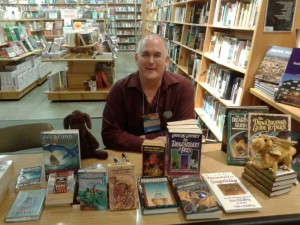 affrey
affrey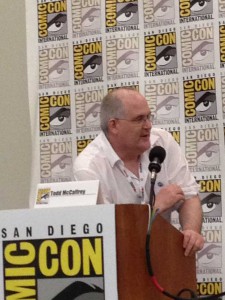
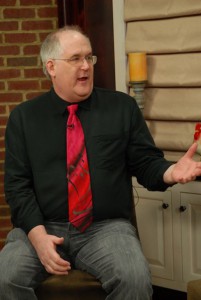

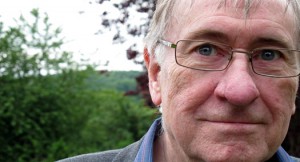
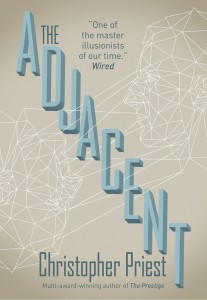
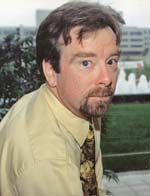
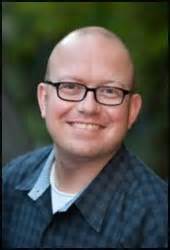
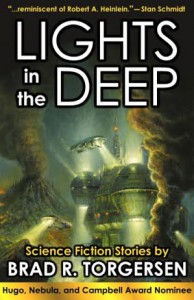
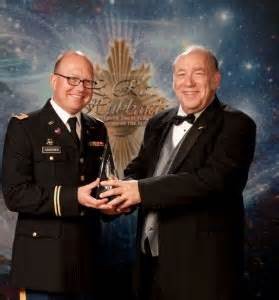
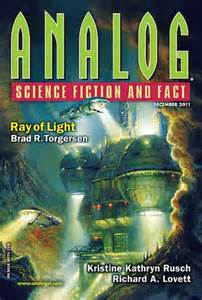
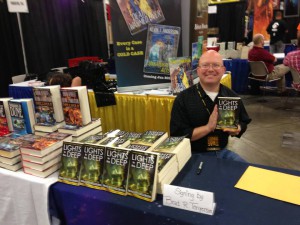
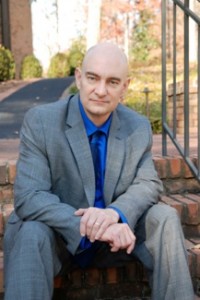
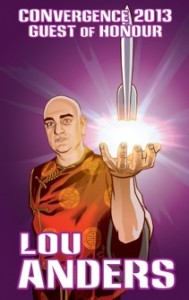 CS: There were several speculative fiction imprints at the time Pyr was launched.
CS: There were several speculative fiction imprints at the time Pyr was launched. 
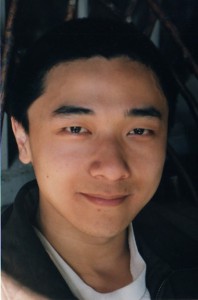
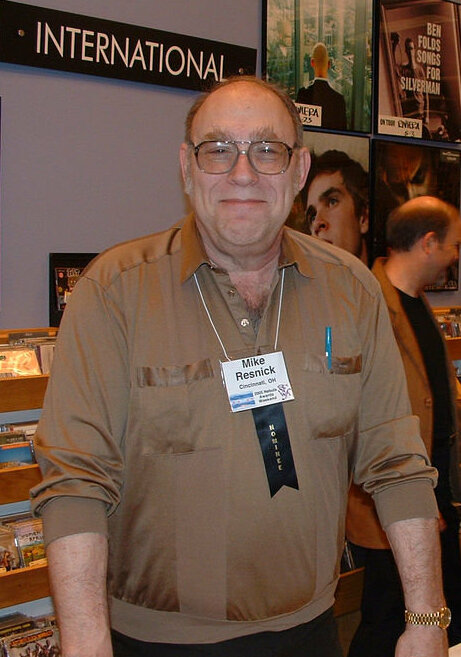 Mike Resnick recently launched 2 new projects.
Mike Resnick recently launched 2 new projects.